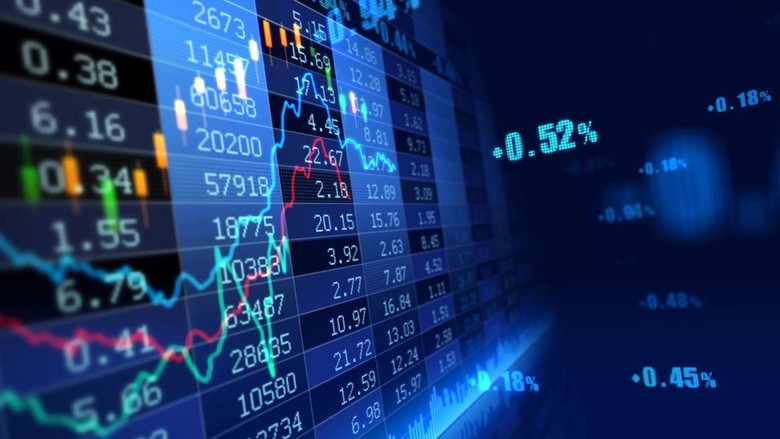
A record 113,000 new domestic trading accounts were opened in March 2021, taking the total to 3.02m. As a result, turnover rose to USD725m in April from USD596m a month earlier – a year ago it was only USD130m.
As a result, the Vietnam market turnover is now almost at the same levels as Singapore and far more than Malaysia and Indonesia. The VN-Index is up 12.4% y-t-d, outperforming all the major regional benchmarks, and it has breached the psychological barrier of 1,200 for the first time, a level it failed to reach during previous bull markets in 2007 and 2018.
Strong growth rebound. The effective containment of COVID-19 has led to a strong rebound in economic growth and domestic liquidity has fuelled the rally, which is being driven by new retail investors. While this increases the risk of volatility, we do not see a risk of a major correction – with deposit rates in decline and gold prices under pressure, there aren’t many alternative destinations for all this liquidity.
And the outlook for stocks is bright – the economic recovery was confirmed by strong corporate results in 1Q21, with revenue rising 24.8% y-o-y and net profit 51.8% y-o-y.
Only a matter of time. HSBC believes that it will be difficult for foreign investors to ignore Vietnam for much longer as: 1) it offers a favourable risk-reward opportunity in one of the most resilient growth economies, 2) the market is getting deeper, broader and more liquid; 3) Foreign ownership limits (FOLs) – are a key issue for foreign investors but we argue it’s not a deal-breaker. Of the 30 major companies that comprise the VN30 Index, 24 have room available for foreign investors. 4) Stocks that have reached their FOL can be bought by paying a foreign premium.
As they generate strong earnings growth but trade at cheaper valuations than their Asian peers, the premium doesn’t look excessive. Furthermore, policy reforms underway, although slow, are positive for the market see Asia Frontier Insights – The Vietnam equity market – increasingly investable 18 Mar 2021 and 5) valuations are attractive – the VN-Index is trading at a 12m forward PE of 15.1x, a 5.3% discount to its fiveyear average, and a 12m forward PB of 2.5x, a discount of 2.9%.
Vietnam continues to outperform
The Vietnam VN Index rose 4.1% in April and is up 12.4% y-t-d, easily outperforming the global emerging markets (GEMs), the Asia ex Japan, and frontier market indices which have risen 5.6%, 5.5% and 6.6% y-t-d respectively. This growth is being supported by both internal and external factors, including strong flows of foreign direct investment (FDI), improvements in the manufacturing segment, and increased consumption. Many new investors are entering the market, with 113,8751 trading accounts being opened in March 2021, taking the total to 3.02m, which is 2.8% of Vietnam’s population.
This is boosting liquidity – turnover was USD725m in April, up from USD596m a month earlier.
A year ago it was only USD130m. This means the Vietnam market turnover is almost at the same levels as Singapore and far more than Malaysia and Indonesia, let alone the Philippines.
Vietnam recorded net foreign outflows of USD13.6m in April, far lower than the USD493m recorded in March. Foreign investors still hold only 22.5% of the 44.1% foreign ownership limit (FOL). When we look at the VN30 index, only six of the 30 companies have reached their FOL.
On the valuation front, VNINDEX is trading at a 12m forward PE of 15.1x, a 5.3% discount to its five-year average, and a 12m forward PB of 2.5x, a discount of 2.9%. Earnings declined by 0.8% in 2020 but are forecast by consensus to rebound 28.2% in 2021 thanks to rising growth, increasing consumption, and the opening up of the global economy after the pandemic. 1Q21 results confirm the earnings recovery
Corporate profitability is increasing as companies recorded higher growth in terms of revenue and profits in 1Q21, up 24.8% y-o-y and 51.8% y-o-y respectively. Banks are benefitting from: 1) increasing credit demand; 2) the gap between lending and deposit rates, supporting higher interest rate margins; 3) the infrastructure push, which is creating demand for credit; and 4) the cheap cost of capital after policy rate cuts in 2020.
Consumer stocks are supported by a recovery in consumer spending and the normalisation of business activity after the pandemic. Industrial and real estate stocks are benefitting from rising demand for infrastructure and materials, on the back of FDI inflows and the opening of new factories and industrial parks. See Vinhomes JSC (VHM VM): Buy: Seasonally slow quarter, 28 April by Joy Wang and Utkarsh Rastogi.
Vietnam has done a great job in containing the virus so far but is lagging behind in vaccination and procurement. At the current pace, Vietnam could be the last country to achieve herd immunity in the region. See Asia COVID-19 & Vaccine Tracker: From bad to worse, 30 April 2021, by Noelan Arbis and Fred Neumann.